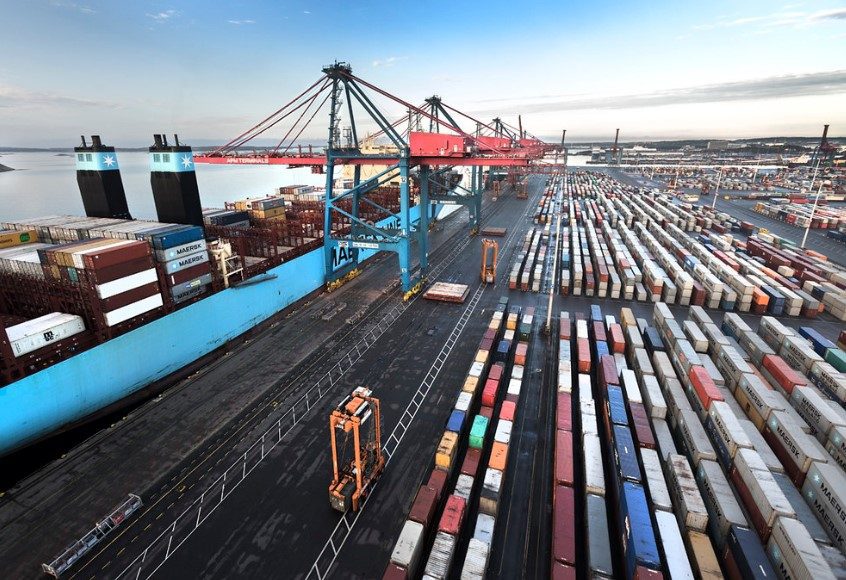In the fast-paced world of logistics, efficiency is the name of the game. With so many moving parts—literally and figuratively—logistics departments must ensure that their facilities are operating at peak performance to keep the supply chain running smoothly. Effective facility management is crucial in achieving this goal, playing a pivotal role in enhancing operational efficiency, safety, and compliance. This is where tailored services can make all the difference.
Logistics departments handle a variety of functions, from warehousing and transportation to inventory management and distribution. Each of these functions requires a unique approach to facility management, addressing the specific challenges that come with them. For instance, warehousing requires ample space, proper organization, and efficient inventory systems. Transportation, on the other hand, hinges on timely dispatching, vehicle maintenance, and effective routing. Understanding the unique needs of logistics operations is essential to creating a streamlined process that supports all these activities.
One of the primary challenges logistics departments face is space management. As businesses grow, the volume of inventory often increases, leading to the need for more efficient use of space. A poorly organized warehouse can lead to inefficiencies, with employees spending unnecessary time searching for items or navigating cluttered aisles. Facility management solutions that focus on optimizing space layout can significantly enhance operational efficiency. This includes implementing smart shelving systems, organizing inventory in a way that aligns with workflow, and utilizing technology to track stock levels in real time.
Another challenge in logistics is the maintenance of equipment and facilities. Whether it’s forklifts, conveyor belts, or HVAC systems, regular maintenance is vital to ensure everything runs smoothly. Downtime can be costly, especially in a department where timely deliveries are critical. Routine inspections, scheduled maintenance, and quick emergency repair services are key components of effective facility management. These services help keep equipment in optimal condition, minimizing the risk of unexpected breakdowns and disruptions in service.
Compliance is yet another significant concern for logistics departments. There are numerous regulations regarding safety, environmental impact, and labor standards that must be adhered to in order to avoid legal complications. Facility management plays a crucial role in ensuring that all operations meet these standards. This could involve conducting safety audits, maintaining records of compliance, and implementing safety protocols. For instance, regular fire safety drills, proper labeling of hazardous materials, and maintaining clear emergency exits are all vital elements of compliance management that help keep employees safe and operations smooth.
When it comes to facility management for logistics, technology integration is a game changer. Smart technology can streamline many processes, making it easier to track inventory, manage shipments, and optimize warehouse layouts. Implementing an inventory management system can provide real-time updates on stock levels, automate reordering processes, and help prevent overstocking or stockouts. With data analytics, logistics departments can make informed decisions about purchasing, storage, and distribution, enhancing overall efficiency.
Efficient facility management also extends to environmental control measures. Maintaining a comfortable working environment is essential for employee productivity and well-being. Proper HVAC systems, pest control, and waste management practices not only keep the facility running smoothly but also contribute to a healthier workspace. For logistics departments, where employees often work long hours, ensuring a clean and comfortable environment can improve morale and reduce turnover rates.
The benefits of efficient facility management in logistics are numerous. Increased operational efficiency can lead to faster turnaround times, allowing companies to respond more quickly to customer needs. Enhanced safety and compliance minimize risks, protecting both employees and the company from potential legal issues. Furthermore, effective resource management can result in significant cost savings, enabling logistics departments to allocate their budgets more effectively.
Many logistics companies in Saudi Arabia have reaped the rewards of tailored facility management services. For example, a major logistics provider in Riyadh recently revamped its warehousing facilities, implementing smart shelving systems and optimizing space layouts. This change resulted in a 30% reduction in retrieval times and improved employee satisfaction. Similarly, a logistics company in Jeddah upgraded its maintenance protocols, ensuring that all equipment was regularly inspected and maintained. This proactive approach reduced unexpected breakdowns by 40%, allowing the company to meet tight deadlines more reliably.
It’s clear that investing in facility management can lead to significant improvements in logistics operations. However, the key is customization. Every logistics department has its own set of challenges, and a one-size-fits-all approach simply won’t cut it. Tailored facility management solutions take into account the specific needs and goals of each logistics department, creating a strategy that supports their operations effectively.
As businesses continue to grow and evolve, the demand for efficient logistics management will only increase. The ability to adapt and optimize processes will be critical for success. By partnering with a facility management provider that understands the unique demands of logistics departments, businesses can stay ahead of the curve. Whether it’s optimizing warehouse layouts, implementing advanced inventory tracking systems, or ensuring compliance with safety regulations, tailored services can provide the support logistics teams need to excel.
In conclusion, efficient facility management is vital for the success of logistics departments. From optimizing space and maintaining equipment to ensuring compliance and integrating technology, the right management strategies can enhance operational efficiency and contribute to overall business success. By investing in tailored facility management solutions, logistics departments can streamline their processes, improve safety, and achieve cost savings, all while ensuring that they can meet the ever-increasing demands of their customers. For logistics teams looking to improve their operations, embracing effective facility management is a step in the right direction.
Contact Information:
Phone: +966 56 039 2669
Website: www.gulfektimal.com
Email: info@gulfektimal.com




